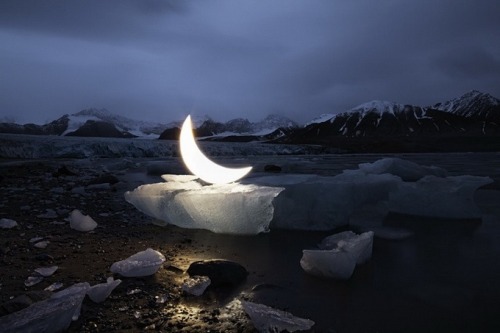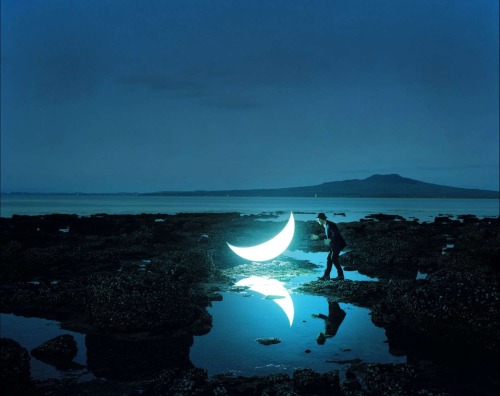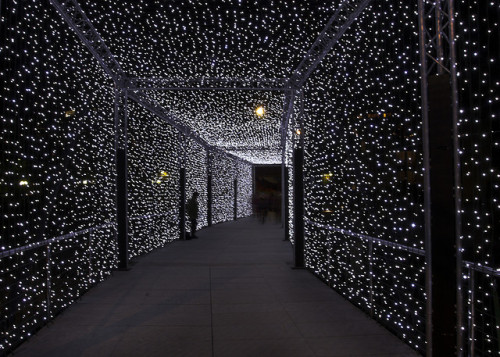Water Found
Water found
This just in, NASA’s study published today reveals that they’ve found liquid water on Mars. It’s confirmed.
More Posts from Inter-stellxr-blog and Others








Check out these 10 cool facts about Mercury here: http://astronomyisawesome.com/solar-systems/cool-facts-about-mercury/

Curiosity moved approximately 8.0m ESE (119º) on Sol 1151. Quick stitch of the available end-of-drive Navcams. More info to follow
http://space-pics.tumblr.com/
spoopy






First time stacking a photo of the milky way! taken 30 miles from Fargo ND http://space-pics.tumblr.com/ source:http://imgur.com/r/Astronomy/hQfdwrV
This is what our night sky could look like guys.

Boeing 747 carrying space shuttle Endeavor
Astronomy Night at the White House
NASA took over the White House Instagram today in honor of Astronomy Night to share some incredible views of the universe and the world around us. Check out more updates from the astronauts, scientists, and students on South Lawn.

Here’s a nighttime view of Washington, D.C. from the astronauts on the International Space Station on October 17. Can you spot the White House?

Check out this look at our sun taken by NASA’s Solar Dynamics Observatory. The SDO watches the sun constantly, and it captured this image of the sun emitting a mid-level solar flare on June 25. Solar flares are powerful bursts of radiation. Harmful radiation from a flare can’t pass through Earth’s atmosphere to physically affect humans on the ground. But when they’re intense enough, they can disturb the atmosphere in the layer where GPS and communications signals travel.

Next up is this incredible view of Saturn’s rings, seen in ultraviolet by NASA’s Cassini spacecraft. Hinting at the origin of the rings and their evolution, this ultraviolet view indicates that there’s more ice toward the outer part of the rings than in the inner part.

Take a look at the millions of galaxies that populate the patch of sky known as the COSMOS field, short for Cosmic Evolution Survey. A portion of the COSMOS field is seen here by NASA’s Spitzer Space Telescope. Even the smallest dots in this image are galaxies, some up to 12 billion light-years away. The picture is a combination of infrared data from Spitzer (red) and visible-light data (blue and green) from Japan’s Subaru telescope atop Mauna Kea in Hawaii. The brightest objects in the field are more than ten thousand times fainter than what you can see with the naked eye.

This incredible look at the Cat’s Eye nebula was taken from a composite of data from NASA’s Chandra X-ray Observatory and Hubble Space Telescope. This famous object is a so-called planetary nebula that represents a phase of stellar evolution that the Sun should experience several billion years from now. When a star like the Sun begins to run out of fuel, it becomes what is known as a red giant. In this phase, a star sheds some of its outer layers, eventually leaving behind a hot core that collapses to form a dense white dwarf star. A fast wind emanating from the hot core rams into the ejected atmosphere, pushes it outward, and creates the graceful filamentary structures seen with optical telescopes.

This view of the International Space Station is a composite of nine frames that captured the ISS transiting the moon at roughly five miles per second on August 2. The International Space Station is a unique place—a convergence of science, technology, and human innovation that demonstrates new technologies and makes research breakthroughs not possible on Earth. As the third brightest object in the sky, the International Space Station is easy to see if you know when to look up. You can sign up for alerts and get information on when the International Space Station flies over you at spotthestation.nasa.gov. Thanks for following along today as NASA shared the view from astronomy night at the White House. Remember to look up and stay curious!

One Last Look At The Space Shuttle Endeavour’s Cockpit Before It’s Shut Down Forever

Rocket engine exhaust often contains a distinctive pattern known as shock diamonds or Mach diamonds. These are a series of shock waves and expansion fans that increase and decrease, respectively, the supersonic exhaust gases’ pressure until it equalizes with atmospheric pressure. The bright glowing spots visible to the naked eye are caused by excess fuel in the exhaust igniting. As awesome as shock diamonds look, they’re actually an indication of inefficiencies in the rocket: first, because the exhaust is over- or underexpanded, and second, because combustion inside the engine is incomplete. Both factors reduce a rocket engine’s efficiency (and both are, to some extent, inescapable). (Photo credit: XCOR)
-
 sterlcat liked this · 7 years ago
sterlcat liked this · 7 years ago -
 alienworldsgateway liked this · 9 years ago
alienworldsgateway liked this · 9 years ago -
 wonderlostcause liked this · 9 years ago
wonderlostcause liked this · 9 years ago -
 swanhild reblogged this · 9 years ago
swanhild reblogged this · 9 years ago -
 pineappleempanada liked this · 9 years ago
pineappleempanada liked this · 9 years ago -
 ceeceey liked this · 9 years ago
ceeceey liked this · 9 years ago -
 spoxio liked this · 9 years ago
spoxio liked this · 9 years ago -
 fugyourselfff liked this · 9 years ago
fugyourselfff liked this · 9 years ago -
 cinzia667 reblogged this · 9 years ago
cinzia667 reblogged this · 9 years ago -
 hehuh2 reblogged this · 9 years ago
hehuh2 reblogged this · 9 years ago -
 hehuh2 liked this · 9 years ago
hehuh2 liked this · 9 years ago -
 starhasarrived liked this · 9 years ago
starhasarrived liked this · 9 years ago -
 cowardwitchboy reblogged this · 9 years ago
cowardwitchboy reblogged this · 9 years ago -
 cowardwitchboy liked this · 9 years ago
cowardwitchboy liked this · 9 years ago -
 nuclearnocturnal liked this · 9 years ago
nuclearnocturnal liked this · 9 years ago -
 shadowhuntersinwendlyn liked this · 9 years ago
shadowhuntersinwendlyn liked this · 9 years ago -
 demigodsandbeyond-archived liked this · 9 years ago
demigodsandbeyond-archived liked this · 9 years ago -
 mini-space-alien-blog liked this · 9 years ago
mini-space-alien-blog liked this · 9 years ago -
 kittenxjihoon reblogged this · 9 years ago
kittenxjihoon reblogged this · 9 years ago -
 elegancesama reblogged this · 9 years ago
elegancesama reblogged this · 9 years ago -
 inter-stellxr-blog reblogged this · 9 years ago
inter-stellxr-blog reblogged this · 9 years ago -
 abduct-ee reblogged this · 9 years ago
abduct-ee reblogged this · 9 years ago -
 jarslife liked this · 9 years ago
jarslife liked this · 9 years ago -
 kkeiraknightley reblogged this · 9 years ago
kkeiraknightley reblogged this · 9 years ago -
 cursivedriving liked this · 9 years ago
cursivedriving liked this · 9 years ago -
 aundisworld reblogged this · 9 years ago
aundisworld reblogged this · 9 years ago -
 stutteringsomethinginsane liked this · 9 years ago
stutteringsomethinginsane liked this · 9 years ago -
 messedup-teenx-blog liked this · 9 years ago
messedup-teenx-blog liked this · 9 years ago -
 ragingdumpsterfire777 reblogged this · 9 years ago
ragingdumpsterfire777 reblogged this · 9 years ago -
 mincin00 liked this · 9 years ago
mincin00 liked this · 9 years ago -
 augurofauguring reblogged this · 9 years ago
augurofauguring reblogged this · 9 years ago -
 lockedinabirdcage reblogged this · 9 years ago
lockedinabirdcage reblogged this · 9 years ago -
 scab-eaters-anonymous reblogged this · 9 years ago
scab-eaters-anonymous reblogged this · 9 years ago -
 slowdancingwithdemons reblogged this · 9 years ago
slowdancingwithdemons reblogged this · 9 years ago -
 royalturkeyz reblogged this · 9 years ago
royalturkeyz reblogged this · 9 years ago -
 royalturkeyz liked this · 9 years ago
royalturkeyz liked this · 9 years ago -
 lost-intentions reblogged this · 9 years ago
lost-intentions reblogged this · 9 years ago -
 lost-intentions liked this · 9 years ago
lost-intentions liked this · 9 years ago -
 animarecrafter reblogged this · 9 years ago
animarecrafter reblogged this · 9 years ago -
 medieval-cowboy reblogged this · 9 years ago
medieval-cowboy reblogged this · 9 years ago -
 outofadelorean-blog reblogged this · 9 years ago
outofadelorean-blog reblogged this · 9 years ago -
 glasz-eyes-charming liked this · 9 years ago
glasz-eyes-charming liked this · 9 years ago
"I don't know who will read this. I guess someone will find it eventually. Maybe in a hundred years or so." -Mark Watney
174 posts